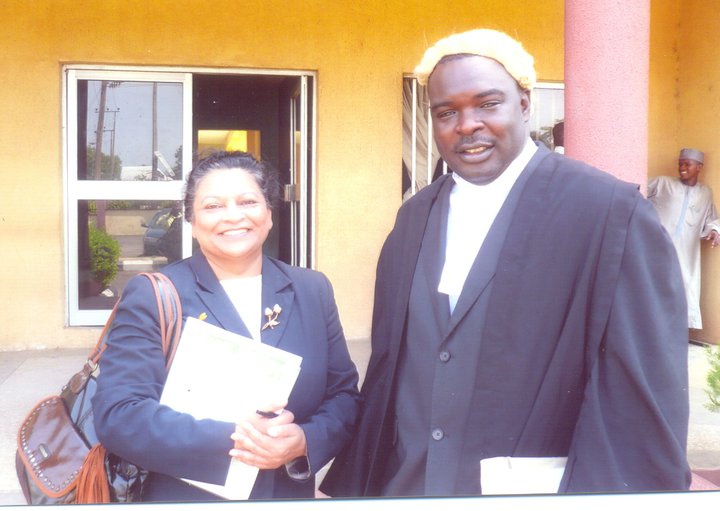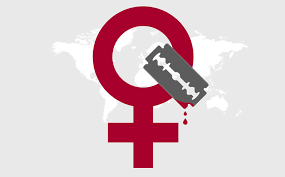The Adamu Garba and 20 Ors v Federal Attorney General of Nigeria and 13 Ors constitutional case, scheduled for judgment on Friday June 3rd 2011 has been adjourned. Judgement was not delivered as scheduled because the judge did not come to court. The case is filed at the Federal High Court in Kaduna before Hon. Justice Mohammed Lawal Shuaibu. A new judgement date is yet to be communicated by the court.
Adamu Garba and 20 other Nigerian citizens are suing the Federal Government of Nigeria and 13 state and local governments for discrimination caused by the indigene/settler divide. Claiming their right to protection from discrimination, the 21 persons are asking the Federal High Court in Kaduna to enforce their constitutional rights. They are suing the Federal Government, the Federal Character Commission, Plateau, Kaduna, Kano and Katsina states, and Jos North Local Government Area (LGA), Shendam LGA, Kaduna South LGA, Giwa LGA (Kaduna), Fagge LGA (Kano), Kumbotso LGA (Kano), Nassarawa LGA (Kano) and Tarauni LGA ( Kano).
“Claiming their right to protection from discrimination, the 21 are asking the Federal High Court in Kaduna to enforce their constitutional rights.”
The complainants are challenging their arbitrary classification as “settlers” or “non-indigenes” by their respective states. This government practice denies them their fundamental human rights under Nigeria’s 1999 Constitution and African and international human rights law. They are asking the Federal High Court to order the full recognition and respect of their rights, and those of all Nigerians suffering similar discrimination.
Sudden passing of Hamza Goshi Ishaq, 2nd Plaintiff
Tragedy met this court appearance as the second plaintiff in the Adamu Garba case, Hamza Goshi Ishaq, collapsed and died in his hotel room on Thursday 2nd June 2011, soon after arriving in Kaduna from Yelwa-Shendam in neighbouring Plateau State where he resides. At the advanced age of 78 years, he was the oldest plaintiff. Although of frail health, he had insisted on travelling to Kaduna from Yelwa-Shendam in Plateau State to witness the judgement.
At 78 years of age, Hamza Goshi Ishaq was well versed in the history of the Jawara people in Plateau State and indeed of the inter-communal tensions that exist between the Jawara and Goemai communities in Nigeria’s Plateau State. He shared his wealth of knowledge openly and warmly. A tailor and farmer, Hamza Goshi was the Secretary of the Council of Traditional Elders on Yelwa-Shendam.
IHRDA and our fellow counsel Barristers Festus Okoye and Muhammad Lawal Ishaq once again, express our deepest sympathies to the family of Hamza Goshi Ishaq.
Background
The Federal Character Principle is enshrined in s. 147 (3) of the Constitution of the Federal Republic of Nigeria, 1999. However well-intentioned, in a multi-ethnic setting like Nigeria, the Principle has been unnecessarily expanded and distorted, allowing for politicisation of the question of who is considered “indigene” of a State or Local Government Area in Nigeria. Further, classifications of “indigeneity” and issuance of “indigene certificates” have resulted in preferential and sometimes exclusive access to rights and services ordinarily due to all citizens. As a result, Nigerians who are classified as “non-indigenes” or “settlers” are marginalised and excluded in ways that have nothing to do with the aims of preservation of cultural identity and autonomy envisioned by the Federal Character Principle.
“Nigerians who are classified as ‘non-indigenes’ or ‘settlers’ are marginalised and excluded in ways that have nothing to do with the aims of preservation of cultural identity and autonomy envisioned by the Federal Character Principle.”
The discriminatory treatment meted out to “non-indigenes” has deep historical and socio-political underpinnings, and is probably the most sensitive subject in Nigeria’s public life. It has contributed to a cycle of violence in certain states and is of earnest national security concern for Nigeria. As such, if not resolved, it can threaten the very social fabric of Nigeria.
“Non-indigenes” are discriminated against and are denied rights, opportunities and benefits, including:
- educational opportunities and benefits;
- employment opportunities and benefits;
- access to public and military service;
- property ownership and allocation;
- government infrastructure and services such as roads, water and schools; and
- political participation and opportunities.
The discriminatory treatment faced by “non-indigenes” defeats the idea of integration which should help in moulding society and strengthening the “One Nigeria’ belief.








